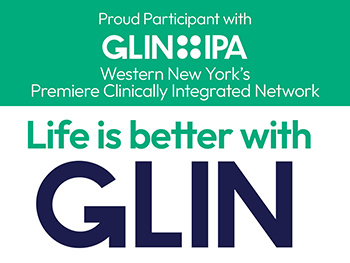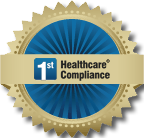A New Year often means new opportunities to live healthier. As a result, we eagerly resolve to kickstart new habits or give up old ones as we enter the New Year. But, as we try to keep our resolutions – with good intentions – we give up before the first month of the new year is over. Frustrating, right? The key is to make a plan and set goals. Then, with a strong foundation, sound support systems, and effort, our healthy resolutions become lasting, new healthy habits for 2022.
Regular Wellness Checkups
First, make an appointment to see your health care provider and ensure you’re in good health. Whether it's a yearly physical, bi-annual dental checkup, or managing any chronic conditions, start the year off right and check in on your body. These visits will help provide you with a baseline health measurement. Next, work together with your provider to create a wellness plan. Your plan may include diet, regular office visits, an exercise regimen, a review of medications, or more. Finally, you and your provider working together will solidify those wellness resolutions.
Mental Health
Mental and emotional well-being is fundamental to pursuing your resolution goals, but what does that look like? According to the WHO, good mental health is “a state of well-being in which the individual realizes his or her abilities, can cope with the normal stresses of life, can work productively and fruitfully, and is able to contribute to his or her community”. Much like physical health, good mental health is dependent on proper diet, exercise, and sleep. In fact, according to a study done at the University of Otago, sleep is the strongest predictor of mental health over diet and exercise. In addition, lowering screen time and meditation can help boost cognitive function and mood. Good mental health may also begin as a discussion with your doctor at your annual physical. Your primary care physician can share trustworthy resources if needed.
Sleep
A good night's sleep can boost your immune system, prevent weight gain, strengthen your heart and increase your productivity – all good if you are looking to make changes for 2022. According to the CDC, adults need about 7-9 hours of sleep per night, but only one-third get the recommended amount of sleep.
Lack of proper sleep can reduce memory, decision-making capabilities, and concentration. And, according to a study from the AAA Foundation for Traffic Safety, you’re twice as likely to get in a car accident when you’re cruising on six to seven hours of sleep.
The bottom line – sleep is good for you. So create nighttime routines to get your mind and body relaxed, try meditating or praying, avoid eating right before bed, and stop looking at your phone or tablet.
Healthy Eating
Eating a healthy, balanced diet is one of the most important things you can do to protect your health. The right foods can fuel the body, boost brainpower and make falling asleep easier. The USDA recommends eating a balanced diet with protein, vegetables, grains, fruits, and healthy oils to maximize your health.
Kelly Cardamone, MS, RDN, CDCES, Nutrition & Diabetes Program Manager at General Physician, PC recommends the following: "Aim to eat healthy 80-90% of the time and make protein the garnish at a meal and not the centerpiece. Eat three balanced meals a day to prevent unnecessary and unhealthy snacking, and include a fistful (that equals a cup) of vegetables at most meals. Try to eat more vegetables than fruits every day as a daily goal.
In addition, a healthy diet can help lower your risk of heart disease and stroke and has the power to reduce your chances of chronic diseases over your lifetime. However, if you are dealing with multiple health conditions (diabetes, kidney disease, liver disease, high cholesterol), it can feel overwhelming to find a diet that works to support you. Kelly suggests seeking out the help of a Registered Dietitian. "That is why we are here! We help you find a healthy eating plan that addresses multiple conditions."
Exercise
According to a survey done by Marist Poll and NPR, one of the most popular New Year's resolutions is exercise. Much like sleep and nutrition, exercise has far-reaching health benefits. The Mayo Clinic explains that "exercise boosts cognitive function and mood, helps control weight, and aids in restful sleep."
You don't have to shell out dollars for a gym membership either. There are plenty of ways to get your body moving - no matter your physical condition. Take a walk, ride your bike, or swim, snowshoe, cross country ski, sled or hike, take a dance class, swim, or YouTube home exercise videos. Again, there are plenty of ways to get active and fit. The key is to find what is suitable for you and stick with it. And, as recommended, check with your doctor before starting any new routines.
Set Goals and Follow Up
All of the above are great New Year's Resolution suggestions. But there’s one more thing you need to be successful – goals. Setting goals help turn your resolutions into bite-sized and specific chunks. Keep your goals SMART: specific, measurable, attainable, relevant, and time-based. And be sure to track your resolution journey. Journaling offers you a way to review and evaluate your progress and challenges. Keeping a journal forces you to commit your goals in writing and will help you be successful.
No Time Like the Present
The New Year is an exciting opportunity to start fresh. If a healthier lifestyle is your goal, a good foundation will help you actualize your resolutions and form lifelong habits. Use 2022 as an opportunity to start your journey to living a healthier life. Include your physician, set goals, and commit to making a change.

 APPLY ONLINE TODAY!
APPLY ONLINE TODAY!





